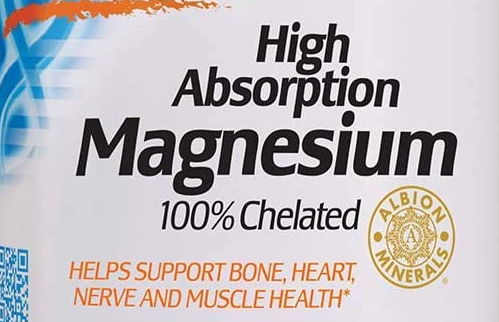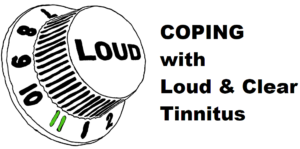Can Magnesium deficiency cause or worsen Tinnitus? Will taking Magnesium supplements help with or even cure your Tinnitus? How are Magnesium and Tinnitus connected? Let’s explore.
How Does Magnesium Deficiency Cause Tinnitus?
Excites the Auditory Nervous System
Magnesium deficiency leads to increased calcium channel activity. This over-influx of calcium then enhances the production of glutamate. Glutamate is a neurotransmitter that is present in 90% of the brain’s synapses. Excessive production of glutamate can therefore lead to a state of hyperexcitation of the brain. This has a telling effect on the auditory nerve’s function. Tinnitus is one of the side effects.
What is Your Tinnitus Handicap Score?
Calculate your THI Score in about 2-3 Minutes
So, when magnesium deficiency is addressed, its Glutamate inhibiting characteristic prevents your nervous system from going into overdrive. Tinnitus can either decrease in intensity or even resolve itself in some cases.
Increases Blood Pressure
If you have been a regular reader at Tinnitus And You, you would have by now known that high blood pressure doesn’t go well with Tinnitus. Your ears rely on oxygen and glucose that is provided by blood. When your blood pressure is high, it means that the heart is working hard and is still not able to provide blood to all organs in the body. Your ears are supplied by narrow or fine capillaries or small blood vessels that are particularly difficult to push blood through, when blood pressure is up.
How Magnesium helps here is that it relaxes your blood vessels. Blood flows more easily and your ears receive an optimal amount of blood. With blood comes oxygen and also sodium and potassium and other nutrients that make up the inner ear fluid’s composition.
How Severe is Your Tinnitus?
Find out by using this THI (Tinnitus Handicap Inventory) Scoring Calculator
This is why there are many anecdotal references where people having both heart problems and Tinnitus experience a tremendous amount of relief after going to the hospital for a heart ailment. It is because Magnesium is the first thing that is usually administered to stabilize people with heart disorders. Besides addressing their heart ailment, it does wonders to their Tinnitus as well.
Improves Protection Against Loud Noise-Induced Hearing Loss
Anything over 85 dB is harmful to your ears. This is why most concerts cause or make the ringing in your ears worse. Rock concerts feature decibel levels that easily cross 115 dB, well over the 85 dB threshold for safe hearing.
When you are exposed to very loud sounds, there’s a lot of free radical damage in your ears. Free radicals attack small hair like cells that are responsible for converting sound waves into electrical signals for the brain to process. Magnesium inhibits this free radical damage, thus preventing death or damage of these hair like cells that don’t have the ability to repair or regenerate themselves.
It is also suggested that Magnesium can protect the Dorsal Cochlear Nucleus. After being exposed to loud sounds, your hearing is usually muted. When this happens, your Dorsal Cochlear Nucleus amplifies sounds you hear to normalize your hearing to levels that you are used to. But, when your hearing returns to normal, this amplification can be left ‘on’ due to the Dorsal Cochlear Nucleus’s compromised memory. Magnesium can prevent this from happening.
Studies Linking Magnesium and Tinnitus
A Mayo Clinic sponsored study examined the effects of Magnesium supplements on the amount of Tinnitus relief it can provide. You can read about this study’s phase 1 and phase 2 stages here.
19 subjects with slight to intense Tinnitus completed a 25 day magnesium supplementation course. They were given 532 mg of Magnesium a day as a daily supplement.
After 25 days, the group that received Magnesium supplementation reported a significant improvement in the intensity of their Tinnitus, measured by THI scores (Tinnitus Handicap Inventory). The placebo group showed no such improvement. The study arrived at a P value of 0.03 for the group that received Magnesium supplementation. Among patients who had slight to intense Tinnitus, P was calculated as 0.008. In scientific studies, a P value of less than 0.05 is considered statistically significant. The lower the P value, the higher the statistical significance. So, in this case, the study concluded that having a more severe form of Tinnitus means that you have a better chance of seeking relief with Magnesium supplementation.
Will Taking Magnesium Supplements Help Me With My Tinnitus?
This will of course depend on whether you have a Magnesium deficiency. If you are deficient by 100 mg or more, Magnesium supplements can definitely help improve your Tinnitus symptoms. And, you can watch out for these Tinnitus going away signs to see if Magnesium is working for you. The average male requires about 410-420 mg a day and the average female requires 310-320 mg a day. It is estimated that most Americans have a Magnesium deficiency that amounts to about 100 mg a day.
Best Magnesium Supplements for Tinnitus
Magnesium is available in many forms. Of all the forms available, magnesium citrate, magnesium glycinate and magnesium threonate are the most easily absorbed forms. On the other hand, you can avoid supplements that deliver magnesium in magnesium oxide and magnesium sulfate forms, as these have poor absorption profiles.
Below is the link to the most absorbable form of Magnesium I’ve ever come across. It is what I tried personally, and very successfully I must add.
Best Magnesium Dosage for Tinnitus
This will depend on your current Magnesium levels. Only a doctor can tell you precisely what dosage is optimal for you. Generally, 100 mg a day is fairly safe to begin with. The recommended upper limit is capped at about 350 mg a day.
You can start with 100 mg a day and work your way up to 300 or 350 mg a day. A good way to tell when you are consuming too much Magnesium is when diarrhea starts. When you reach that stage, roll back to the previous dosage that didn’t cause a case of the runs. But, it is best if you do not experiment and instead talked to your Doctor about the right Magnesium dosage for you.
How to Ensure Maximum Magnesium Absorption to Help With Tinnitus?
You must remember that merely taking a supplement doesn’t mean that it will be absorbed by your body. Sometimes, it can just pass through and be wasted.
Studies have shown that poor Vitamin D levels cause poor absorption of Magnesium. So, get your Vitamin D levels checked and take a Vitamin D supplement as well, if needed. Vitamin D can also be obtained with exposure to sunlight. In fact, Vitamin D deficiency on its own can cause or exacerbate Tinnitus. Read our post on Vitamin D and Tinnitus here.
You must also avoid having foods rich in calcium or phosphate in a two hour window before and after taking a Magnesium supplement. This is because both Phosphate and Calcium can inhibit the absorption of Magnesium. This doesn’t mean that you should avoid Calcium or Phosphate though. You just shouldn’t take it around the times you take your Magnesium supplements.
Foods Rich in Magnesium
Supplementing your Magnesium doesn’t always have to be in the form of supplements. Plenty of natural foods are high in Magnesium. Magnesium rich foods that you can easily include in your diet include;
- Bananas
- Fatty fishes
- Leafy greens
- Whole grains
- Seeds
- Legumes
- Nuts
- Dark chocolate
- Avocados
Also Read: Vitamin B 12 Deficiency and Tinnitus
Also Read: Benfotiamine for Tinnitus




